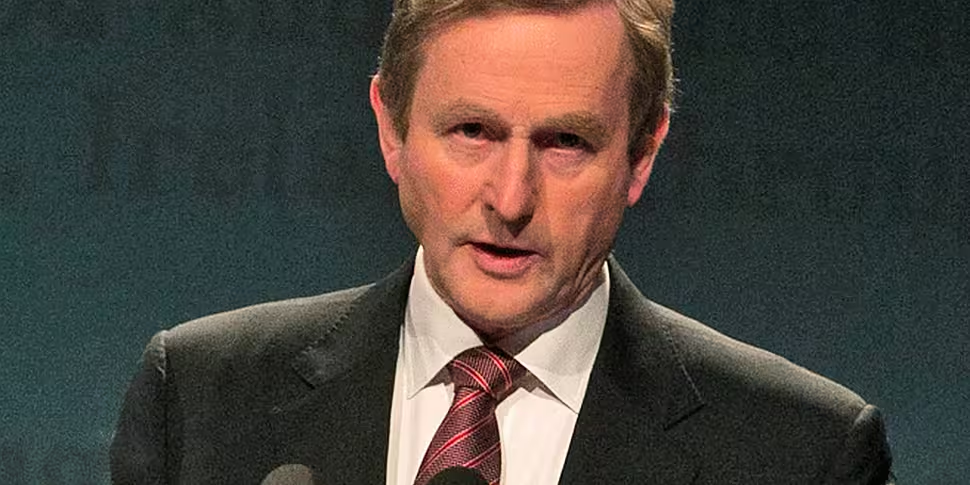Lessons from the U.K. elections.....
Yes, the UK has a different electoral system to ours. If we had a first past the post system here then overall majorities would be a reality again, and our smaller parties would lose out. Thankfully that’s not the case, but there are lessons on what happened this week in the Westminster Parliament that can be learned by all political parties here.
Firstly, the message for Enda Kenny is that he can win re-election as Taoiseach, and that Fine Gael can be the largest party whenever he calls the poll. No, he can’t win an overall majority on his own, but his message is pretty much the same as David Cameron – we took over when the economy was at the edge of a cliff, we started to fix it, we want to finish the job.
There’s probably a bigger message for Tánaiste Joan Burton – the junior partner in a coalition, whatever the size and representation in Cabinet yet again seems to suffer. The Liberal Democrats were almost wiped out, and a similar fate could be facing the Irish Labour Party.
Sinn Féin will no doubt be looking at the performance of the Scottish National Party – anti-austerity just like where Gerry Adams has positioned his party, and they have reached massive electoral success, and will probably be a major opposition voice to Mr Cameron.
Let’s not forget the similarities between the British Labour party and Fianna Fáil. Both were in Government when the economy faltered and both were thrown out. Ed Milliband took Labour further to the left (Tony Blair won elections between the centre-left and centre), and similarly Micheál Martin has been moving Fianna Fáil more to the left. The British electorate weren’t for allowing Labour back in Government after one spell in Opposition, the Irish electorate may feel the same about Fianna Fáil – it’s unlikely Fianna Fáil will lose further seats here at the next election, but the problem will be getting enough seats to remain as the largest opposition party.
The similarities between Lucinda Creighton’s Renua and Nigel Farage’s UKIP are noticeable too. Both are right-wing and are effectively disenchanted Tories and Fine Gaelers. Farage couldn’t get himself elected – Creighton will have to be worried of a similar position herself in the Dublin Bay South constituency that is famous for showing little loyalty to politicians.
No political leader here will be getting some sort of a headstone made up with pledges that would be landed as a centre-piece of the fountain of Government Buildings next time. Enda Kenny will sell himself as the leader who fixed the economy and wants more time to finish the job. Joan Burton will tell us of all the fairer things that happened with Labour in the coalition. Micheál Martin will tell us there’s a fairer way, and Gerry Adams will tell us all there’s no need for any austerity. Let’s see what happens.
Not all happy in the political marriage referendum...
All the main political parties are united on the Marriage Equality referendum – all are calling for a Yes vote. All of them promised major campaigns, getting the message to as many people as possible. There has certainly been an active door to door campaign by Labour, and many in Fine Gael are doing something similar. But there has been a marked absence of such campaigns by Fianna Fáil and Sinn Féin. Many in the Government parties aren’t happy about this, with some approaching me this week to give out about the two Opposition parties.
Why is this such an issue? Well another lesson from the UK elections this week – the polls were wrong and many people went for the known, status-quo, default position – not really wanting change. And the Government parties fear such an attitude could leave this poll a lot closer on May 22.
The reality though is that this referendum was never going to be won or lost by the politicians – this is a social, societal issue that will be won or lost by people’s stories. The No campaign didn’t have such a good week when it emerged the family in their posters was just a ‘stock’ photo and that the couple involved were actually in favour of same sex marriage.
The Yes campaign did what they have been doing since this campaign got underway properly – letting citizen’s stories make the arguments. The Taoiseach and Children’s Minister visited ‘BeLonG To’ headquarters in Dublin, where young people put forward impassioned arguments. And GAA players have also joined the cause.
When a banker tells it as it is....
The Banking Inquiry rolled on this week with the tales of what happened in September 2008 and in the run up to the guarantee still centre stage. Many of the witnesses haven’t told us much at all - they were sorry for what happened, they regretted it and all that and they were now drawing their pensions.
This week saw Richie Boucher – the Bank of Ireland boss give evidence. He’s sort of unique in that he held senior roles in the bank in the run up to the financial crisis, he took the top job in 2009, and remains in place.
His evidence this week was interesting and I felt at the end of it that he had in fact helped his reputation. Up to now we were of the opinion that the problems had been building for years but that the crisis was centred on that weekend in late September 2008. We now know that’s not the case. Because Richie Boucher revealed that weeks earlier in early September there was a request to bail out Irish Nationwide Building Society to the tune of €4bn the first time that many people will have realised there was at least a liquidity (if not solvency) crisis going on for weeks before the guarantee was introduced.









